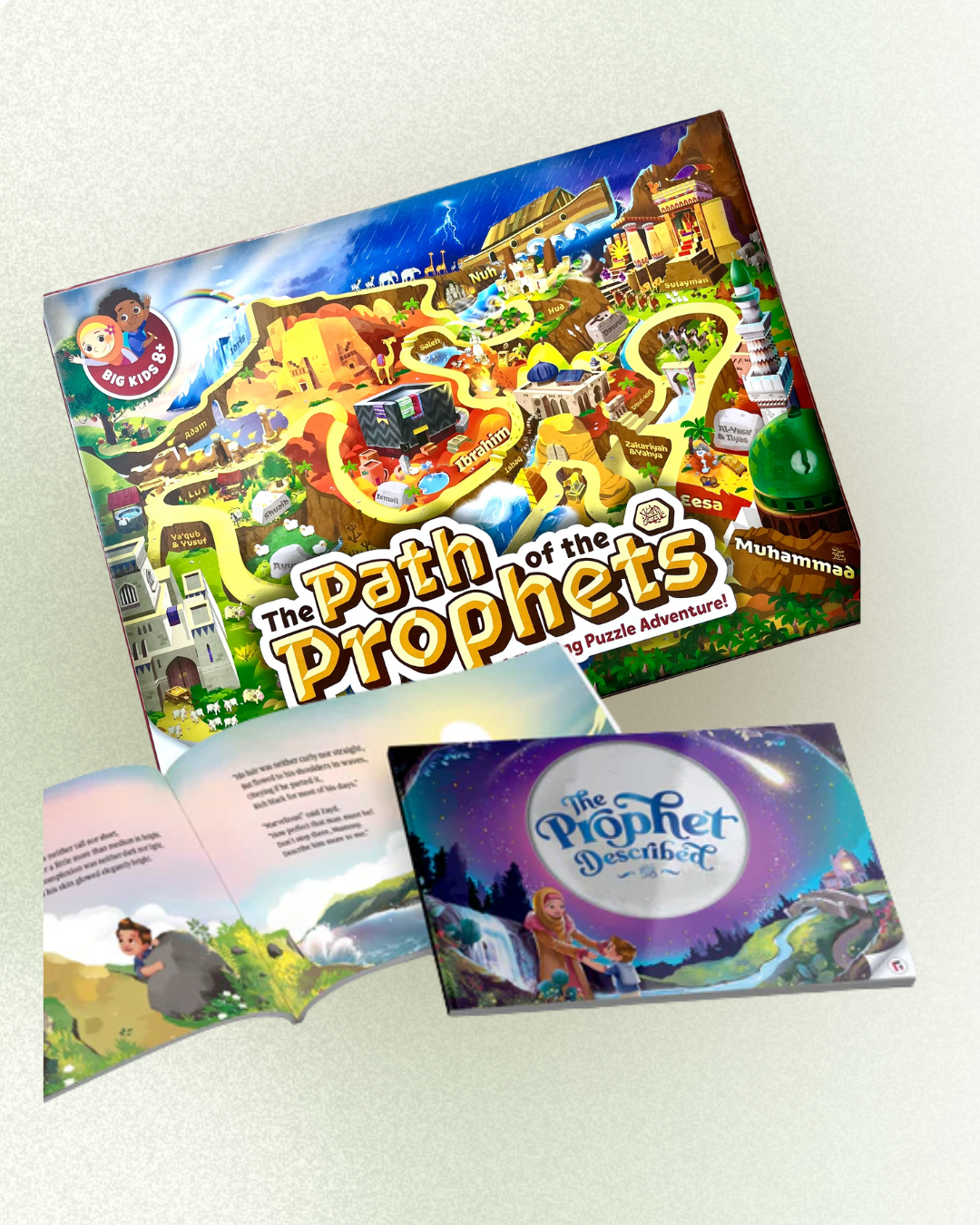عن الكتاب
إن الإسلام هو الدين الوحيد بين الأديان في العالم، فهو لا يكتفي بالبقاء بل إنه يزدهر. ومع ذلك فإن العديد من الناس لا يعرفون إلا القليل عن الإسلام ويعتبرون استمرار جاذبيته لغزًا. في هذا الكتاب، يقدم دو باسكييه، الصحفي السويسري الحائز على جوائز، مقدمة شاملة عن العقيدة الإسلامية وتاريخها وثقافتها.
لا يتناول هذا الكتاب قضايا الساعة فحسب، مثل "الأصولية" ووضع المرأة المسلمة، بل يقدم أيضاً نظرة عامة على القرآن والنبي والتاريخ الإسلامي وطبيعة الفن والأدب الإسلامي. ويقدم هذا الكتاب، الذي يتسم بالحياد والعاطفة في الوقت نفسه، "كشفاً" لابد من الانتباه إليه إذا كنا نريد التغلب على سوء الفهم المتبادل الحالي بين الشرق والغرب.
جدول المحتويات
- تحدي عصرنا
- الإنسان محور الخلق.
- الرسالة الخالدة وحاملها الأخير
- المعجزة وتطورها عبر التاريخ
- ما يجب على الإنسان أن يؤمن به ويفعله لكي يكون مسلما.
- حضارة الوحدانية.
- المسارات الروحية والعائلات.
مقتطف من الكتاب:
تحدي عصرنا
يبدو أن لا شيء على وجه الأرض يستطيع أن ينجو من الأزمة التي تهز العالم الحديث. إن الحديث عن أزمة الحضارة لا يكفي، لأن هذه الظاهرة اكتسبت أبعاداً عالمية. إن الظلام الوشيك يقترب أكثر فأكثر؛ وينتشر شعور بالقلق على نطاق أوسع فأوسع.
لقد جاء الإسلام إلى الإنسان على وجه التحديد لمساعدته على اجتياز هذه المرحلة الأخيرة من التاريخ دون أن يفقد نفسه. وهو الوحي الأخير للدورة النبوية، ويقدم لنا أساليب مقاومة الفوضى الحالية، وإعادة النظام والوضوح داخل النفس ـ فضلاً عن الانسجام في العلاقات الإنسانية ـ وتحقيق المصير الأعلى الذي دعانا إليه الخالق.
الإسلام يخاطب الإنسان، وله فيه فهم عميق ودقيق، ويحدد له مكانته في الخلق وأمام الله.
وعلى النقيض من ذلك، لا يمتلك الفكر الحديث أي علم أنثروبولوجيا محدد جيدًا ومقبول بشكل عام. وفيما يتصل بالإنسان، فقد تراكمت في الفكر الحديث مجموعة هائلة من الحقائق، ولكن الارتباك والتنوع في هذه الحقائق يفضح عدم القدرة على تقديم تعريف متماسك للحالة الإنسانية. ولم تشهد أي حضارة أخرى مثل هذا الجهل الكامل والمنهجي بالسبب الذي من أجله ولدنا، ولماذا نحن على قيد الحياة، ولماذا يجب أن نموت.
إن هذه هي المفارقة التي تسود ثقافتنا، والتي تسعى في المقام الأول إلى أن تكون "إنسانية"، أو بعبارة أخرى، أن تجعل الإنسان هو المعيار والغاية لكل الأشياء، ولكن حتى مفهوم الإنسان قد انهار. فبعد أن حولته نظرية التطور إلى قرد مكتمل، فقد تحرر من كل التماسك الهش الذي تركته له فلسفة العبث. ومن الآن فصاعداً، أصبح الكائن البشري أشبه بدمية تهتز وتتفكك بفعل آلية وضعها هو بنفسه في الحركة، ولكنه لم يعد قادراً على التحكم في حركتها الفوضوية المتسارعة.
لقد فقدت المزامير على الأرض معناها بعد أن أُعلنت سخيفة. والآن يُعرض على الإنسان عدد كبير من الإمكانيات المادية والمزايا التي لم تحلم بها الأجيال السابقة، ولكن بما أننا الآن نجهل ماهية الإنسان وما قد تكون عليه تطلعاته العميقة، فإن أيًا من هذه المعجزات لن يمنعه من الانهيار في يأسه.
ورغم هذا فقد أعلنت الحضارة الحديثة بكل ثقة أنها جلبت السعادة للبشرية. فقد تبنت الثورة الفرنسية إعلان حقوق الإنسان، ويزعم الدستور الأميركي أنه يضمن "السعي إلى السعادة" لكل مواطن. كما أقر القرن التاسع عشر في كل دولة غربية، بل وفي عدد قليل من الدول الأخرى، فكرة التقدم العظيمة التي بفضلها أصبح العصر الذهبي ليس وراءنا بل أمامنا.
ولقد بدا لبعض الوقت أن الحقائق تؤكد هذا الاعتقاد. فقد تحسنت الظروف المادية للطبقات الدنيا من المجتمع الغربي إلى حد كبير، وأصبحت الحرية الفردية مضمونة للجميع، وأعطى العلم الإنسان إحساساً بأنه أكثر اطلاعاً بما لا يقاس من أعظم حكماء الأجيال الماضية، ووضعت التطورات التكنولوجية بين يديه أدوات قوة لم يكن من الممكن تصورها من قبل.
وعلى مستوى آخر، ومن خلال النظريات النفسية التي تزعم أنها حددت أخيراً مركز الثقل الحقيقي للكائن البشري ـ على مستوى الجنس ـ يُـعَد الأفراد بأنهم قادرون على "تحقيق ذواتهم" بمجرد التخلص من كل القيود واتباع ميولهم الخاصة. وبالنسبة للعديد من الناس كان هذا ذريعة كافية لقمع الأخلاق الموروثة من الماضي، والتي أصبحت من الآن فصاعداً بمثابة كتلة من الأحكام المسبقة البالية.
وعلى هذا النحو يعتقد الإنسان الحديث أنه بلغ سن الرشد، ويفترض في الوقت نفسه أن أسلافه في القرون السابقة كانوا طفوليين. ولا يوجد نقص في الفلاسفة، أو حتى علماء الدين، الذين يؤكدون هذا الاعتقاد.
ولكن الحقائق نفسها قد فجرت أخيرا هذه النظريات.
عن المؤلف
روجر دو باسكييه صحافي سويسري تعكس كتاباته عن العالم الإسلامي خبرة ودراسة مدى الحياة. وفي عام 1988 حصل على جائزة جمعية المؤلفين الفرنسيين المرموقة.
عن المترجم
تيموثي جون وينتر (من مواليد 1960)، والمعروف أيضًا باسم الشيخ عبد الحكيم مراد ، هو شيخ مسلم سني بريطاني وباحث وكاتب وأكاديمي. وهو عميد كلية كامبريدج الإسلامية، ومدير الدراسات (اللاهوت والدراسات الدينية) في كلية وولفسون ومحاضر الشيخ زايد في الدراسات الإسلامية في جامعة كامبريدج.
تشمل أعماله منشورات حول اللاهوت الإسلامي والعلاقات بين المسلمين والمسيحيين. في عام 2003 حصل على جائزة بيلكنجتون للتدريس من جامعة كامبريدج وفي عام 2007 حصل على جائزة الملك عبد الله الأول للفكر الإسلامي عن كتيبه القصير " القصف بلا ضوء القمر ". تم إدراجه باستمرار في قائمة "أكثر 500 مسلم تأثيرًا" التي ينشرها سنويًا المركز الملكي للدراسات الاستراتيجية الإسلامية وتم تصنيفه في عام 2012 في المرتبة الخمسين الأكثر تأثيرًا.
-------------------------------
"يقدم هذا الكتاب مقدمة واضحة وموجزة للغاية للإسلام، موجهة خصيصًا لأولئك الذين لديهم القليل من المعرفة أو الفهم المسبق للإسلام... يتمتع المؤلف بموهبة واضحة في شرح القضايا أو الأفكار المعقدة بدقة في بضع كلمات فقط." - مريم جميلة (مراجعة كتاب العالم الإسلامي)
"في هذه الترجمة الممتازة التي قام بها تي جيه وينتر من النص الفرنسي الأصلي، تم تقديم المبادئ الأساسية للإيمان الإسلامي بشكل أنيق وموجز... يوصى بها لكل من غير المسلمين الذين يريدون معرفة المزيد... وللمسلمين الذين يجدون التزامهم يتزعزع، ويحتاجون إلى التعزيز الفكري." - إسلاميكا
تفاصيل:
- الناشر : جمعية النصوص الإسلامية (1 ديسمبر 1992)
- غلاف ورقي : 166 صفحة
- رقم الكتاب الدولي المعياري 13 : 978-0946621323
يرجى السماح بمدة 1-2 يوم عمل لشحن المنتج.
يختلف وقت الشحن حسب خيار الشحن ووجهة الشحن.
الشحن المجاني سيستغرق ما يصل إلى 1-2 أسابيع.
سيتم إرسال جميع معلومات التتبع عبر البريد الإلكتروني بمجرد شحن المنتج.
















